Binge drinking, a widespread concern in today’s society, reveals a realm of potential consequences – spanning across physical health, mental wellbeing, and surprisingly, intriguing aspects of human cognition such as dreams. In our quest to understand the complex interplay between our lifestyle and our subconscious mind, we delve into what binge drinking is, and how this excessive consumption of alcohol can have a profound impact on our dreams and sleep patterns. We dive into the remarkable universe of dreams—exploring and demystifying its inherent neuroscientific aspects. Further, we examine the way alcohol manipulates sleep stages, and particularly REM sleep, during which most dreams occur.
Understanding Binge Drinking
Understanding Binge Drinking
Binge drinking, a well-known and growing concern, is the consumption of a large amount of alcohol in a short period of time. For men, it is defined as having five or more alcoholic beverages within two hours. Women are considered to be binge drinking when they consume four or more alcoholic beverages within the same time frame.
The Centers for Disease Control and Prevention (CDC) classify it as a severe, preventable public health issue. It’s estimated that roughly 17% of all adults in the United States binge drink about four times a month, with an average of eight drinks per session.
Scenarios Leading to Binge Drinking
Binge drinking may occur due to various reasons, but it is commonly associated with social and cultural factors. This type of consumption is popularly linked to college life and fraternity parties, but its occurrence goes beyond this demographic. Some individuals may binge drink to cope with stress, anxiety, or other emotional concerns. On the other hand, some may do so purely for social enjoyment, to feel more relaxed, or to fit in with a particular crowd. Regardless of the reason, the consequences of binge drinking pose significant risks to one’s health, life, and well-being.
Short-term effects of Binge Drinking
The short-term effects of binge drinking include impairment of judgment, increased likelihood of accidents and injuries, dizziness, and vomiting. Moreover, one of the lesser-known but significant impacts of binge drinking is its disruption of the sleep cycle, particularly the REM (Rapid Eye Movement) stage, when most dreaming occurs.
Binge Drinking and Dreams
Binge drinking directly impacts sleep patterns by inducing sleep through the depressive effects of alcohol, but severely disrupting the REM phase of sleep. The REM phase is not only critical for forming dreams, but also plays a crucial role in memory consolidation and learning. As a result, heavy alcohol consumption before sleep often leads to fragmented, unrestful sleep, and infrequent or altered dreaming.
What’s more, even after the alcohol wears off and sleep deepens, dreams may become more vivid and sometimes result in nightmares, a phenomenon known as “REM rebound.” This is when the brain, in an attempt to compensate for lost REM sleep, rushes into this phase too quickly, and for too long, causing intense dreams that may be disturbing or hard to shake upon waking.
Long-term Consequences
Chronic binge drinking can lead to long-term consequences, such as alcohol dependency, liver disease, cardiovascular disease, and neurological damage. It can also cause persistent alterations in sleep patterns and dream cycles, leading to chronic insomnia, recurring nightmares, sleep apnea, and other sleep disorders. This constant disruption of sleep patterns can also affect mental health, leading to conditions like depression and anxiety.
Conclusion
In a nutshell, it’s significant to note that while moderate alcohol consumption can align with a well-rounded lifestyle, over-indulgence may lead to substantial repercussions on both physical and mental wellbeing, including the interruption of natural sleep and dream cycles. Consequently, it’s essential to monitor the amount and frequency of alcohol intake, and takes steps towards intervention if necessary.
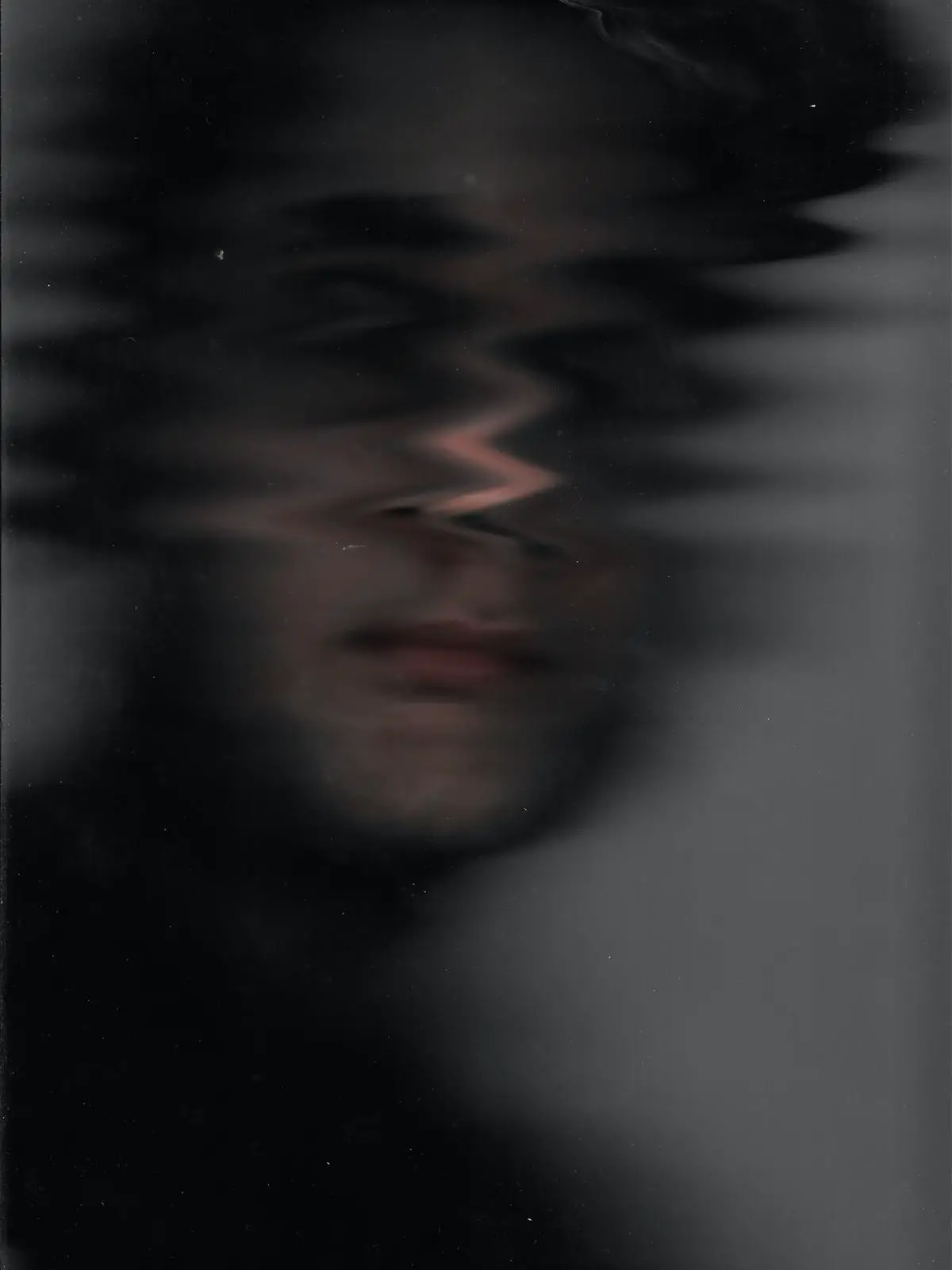
Photo by mbonadeo_ on Unsplash
The Science Behind Dreams
Understanding the Neurological and Physiological Processes of Dreams
Sleep is primarily categorized into two subtypes: rapid-eye-movement (REM) and non-rapid-eye-movement (NREM) sleep. The most vibrant and often recalled dreams occur during REM sleep, where brain activity mirrors that of wakefulness. Key areas of the brain involved during this stage encompass the amygdala, which manages emotions, the hippocampus, responsible for memory storage, and the forebrain, handling complex thinking. Comparably, NREM sleep also pairs with dreaming, albeit less detailed and frequently forgotten, and primarily involves the brain’s cortex and hippocampus.
Impact of Binge Drinking on Dreams
Binge drinking, or the consumption of large amounts of alcohol in a short duration, can greatly affect sleep patterns and thus, dreams. Initially, alcohol may induce sleepiness, but as blood-alcohol levels drop, it can lead to disturbed sleep, an increase in late-night awakenings, and a reduction in the overall amount of REM sleep, the phase in which most dreaming occurs.
Alcohol and REM Sleep
On a night of heavy drinking, REM sleep may be disrupted. After the first few hours, alcohol’s sedative effects wear off and the brain enters into what is referred to as ‘REM rebound’. During a REM rebound, there are more frequent awakenings, nightmares, and vivid dreams. So, binge drinking could potentially result in intense and vivid dreams due to REM rebound, but these dreams may chain into a broken sleep cycle or even nightmares, leading to poor sleep quality.
Deep Sleep and Binge Drinking
Heavy drinking affects not only REM sleep but also deep sleep, or slow-wave sleep – crucial for physical rejuvenation. Alcohol may increase slow-wave sleep in the first half of the night, causing a person to feel more deeply asleep. However, this is often followed by sleep disruptions in the second half of the night, impairing the overall restorative function of sleep.
Dream Imagery and Alcohol Consumption
Studies suggest that individuals who consume alcohol may experience dream imagery related to their drinking habits. For example, people diagnosed with alcoholism often report dreams about drinking, which could be their subconscious reaction to the cravings and withdrawal symptoms.
Binge Drinking, Sleep Deprivation, and Dreams
Continual binge drinking can lead to sleep deprivation, known to increase the frequency and vividness of dreams, often of a stressful or anxious nature. This can perpetuate a vicious cycle of anxiety and alcohol consumption, as stressed individuals may be more likely to consume alcohol to deal with their sleep-related issues.
The effects of binge drinking are extensive and complex, touching many areas of mental and physical health, including sleep patterns and dream generation. Significant alterations can occur in dream intensity and quality of sleep due to the interruption of natural sleep rhythms. This is primarily as a result of the interruption to REM sleep – the phase most associated with dreaming – and alterations in the content of dreams themselves. These interruptions can lead to severe sleep disturbances and deprivation, forming a web of interconnection between binge drinking, sleep, and dreams that has significant implications for the individual’s health and wellbeing.
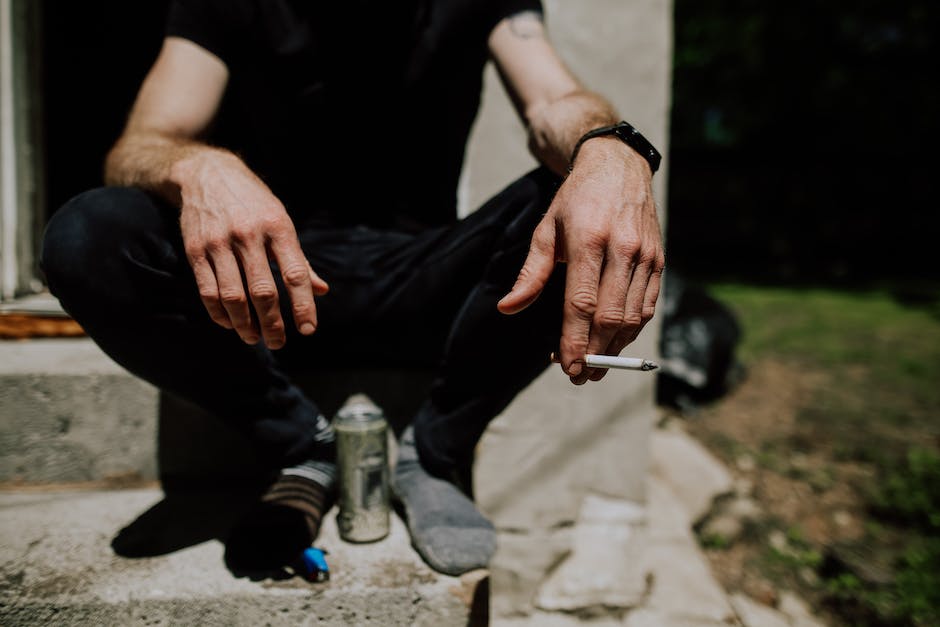
Effect of Alcohol on Sleep & Dream Patterns
The Role of Alcohol as a Depressant in Disrupting Sleep
Alcohol categorically acts as a depressant on the central nervous system. This leads to a slowing down of our mental and physical processes – evidenced in effects such as reduced reaction times, impaired speech and unsteady movements. Sleep patterns are particular victims of this disruption. While the initial stages of consumption can provoke a sedative effect, inducing drowsiness and promoting sleep onset, the issue arises as the body metabolizes the alcohol throughout the course of the night. As this happens, the initially soothing effects of the alcohol dissipate, resulting in fragmented and disturbed sleep as the night progresses.
Alcohol and REM Sleep
One critical stage of sleep that is significantly affected by alcohol consumption is the rapid eye movement (REM) phase. The likelihood of experiencing bouts of REM sleep decreases with alcohol consumption. Due to this, the brain may not cycle through the typical stages of sleep, resulting in an overall decrease in sleep quality. REM sleep, where most of our dreaming occurs, becomes disrupted, which in turn may influence the nature and frequency of our dreams.
Binge Drinking and Dream Patterns
Binge drinking magnifies these effects on the REM phase of sleep and subsequently, on our dreams. On nights of heavy alcohol consumption, you may notice fewer dreams or no dreams at all due to the suppression of REM sleep by alcohol. Upon withdrawal, as the body tries to compensate for the missed REM sleep, a phenomenon known as REM rebound can occur. REM rebound refers to an increase in the number and duration of REM periods. This can lead to more vivid, intense, and potentially disturbing dreams, contributing to restlessness and poor sleep quality. Some research also suggests a link between disrupted REM sleep due to alcohol and the onset of nightmare disorders.
Chronic Heavy Drinking and Sleep Disorders
Further, regular heavy drinking can lead to long-lasting and even irreversible changes to sleep patterns. Alcoholics typically suffer from chronic sleep disturbances like insomnia, sleepwalking, and sleep-related breathing disorders that persist even after achieving sobriety. The mechanisms behind these are complex, with potential causes including changes in the brain’s ‘sleep architecture’, damage to the central and peripheral nervous system, and increased risk of mental health disorders that can disrupt sleep, such as depression and anxiety.
Alcohol’s Impact on Sleep Architecture
In terms of the brain’s sleep architecture, alcohol disrupts the natural flow of sleep stages: the movement from light sleep to deep sleep, a brief return to light sleep, and then into REM sleep. This cycle is typically repeated four to five times a night. However, alcohol interferes with this process, increasing light sleep and reducing important restorative stages like deep sleep and REM sleep. This eventually leads to feelings of fatigue and poor sleep quality, despite the initial sedative effect that alcohol might have.
There is a common misconception that alcohol can be used as an effective sleep aid. While it might appear to help initially, the reality is that heavy and regular consumption of alcohol can adversely affect your sleep quality and dream patterns. Disruptions in REM (Rapid Eye Movement) sleep due to alcoholic binges may eventually paving the way for mental health disorders, cognitive function impairment and a host of other health-related issues.
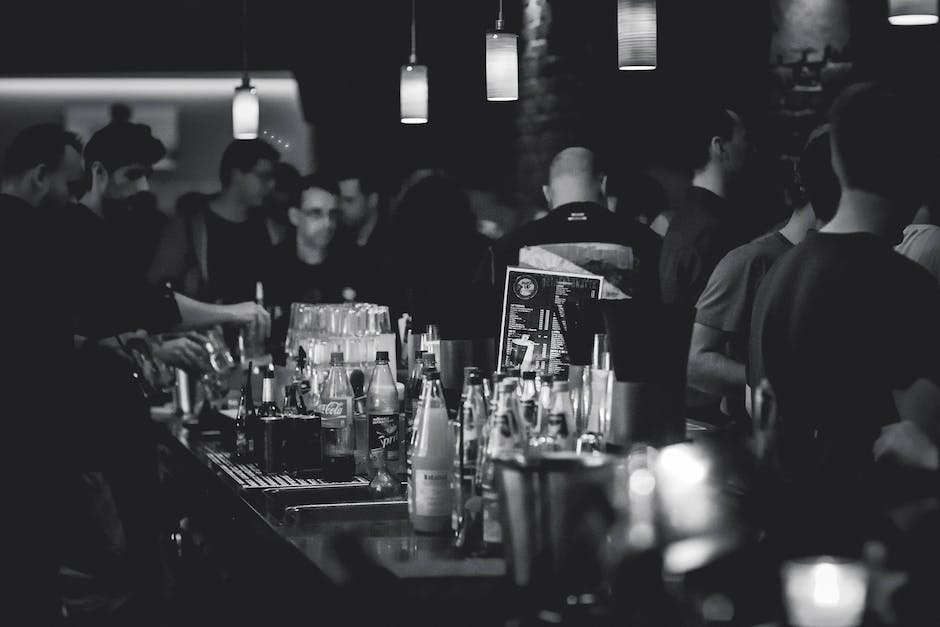
Binge Drinking’s Impact on Dreams
Shedding Light on Binge Drinking
Simply put, binge drinking is the intake of alcohol in large quantities over a short period of time, usually resulting in intoxication. One is considered to be binge drinking if their blood alcohol concentration (BAC) reaches or exceeds 0.08 g/dL. Translating this into drinks consumed, it is roughly equivalent to men having five or more, and women having four or more drinks in a time frame of about two hours. Such heavy patterns of drinking have been identified as a serious public health concern by the Centers for Disease Control and Prevention (CDC), not only in the United States but also around the world.
The Relationship between Binge Drinking and Sleep
Binge drinking can significantly disrupt sleep patterns. Alcohol is a sedative, and hence, it may initially help a person fall asleep. However, as the body metabolizes the alcohol, it can lead to disruptions in the sleep cycle, including the rapid eye movement (REM) stage, which is when most dreaming occurs. As alcohol suppresses REM sleep in the first half of the night, it often leads to a REM rebound effect in the second half, causing fragmented sleep and intense dreaming.
The Impact of Binge Drinking on Dreams
Binge drinking’s impact on dreams has been extensively studied. One of the common occurrences reported by many binge drinkers is the increase in the intensity of dreams and nightmares. This phenomenon is primarily due to the REM rebound effect. When the suppressive effect of alcohol wears off, the brain compensates by increasing the duration and intensity of REM sleep, which often results in intense and vivid dreaming, giving rise to the term ‘drunken dreams.’ This can lead to night sweats, nightmares, and even night terrors – episodes of intense fear during sleep.
Influence on Dream Recall
Binge drinking also affects dream recall. While alcohol can lead to more intense dreams, it can simultaneously impair memory, making it difficult to remember these dreams. Because alcohol interferes with the neurotransmitters in the brain that are essential for memory formation, people who binge drink often have a scant or fragmented recall of their dreams.
Nightmares after Binge Drinking
A phenomenon often reported by binge drinkers is the occurrence of nightmares or disturbing dreams. This is thought to be a result of the brain’s attempt to make up for lost REM sleep, a stage of sleep often associated with vivid, narrative-driven dreams. The combination of intense REM sleep and the body’s physiological response to withdrawing from alcohol can lead to disturbing dreams and nightmares.
Personal Experiences and Studies on Binge Drinking’s Impact on Dreams
Anecdotal stories and personal experiences often corroborate the scientific research surrounding binge drinking’s impact on dreams. A study published in the journal Alcohol and Alcoholism highlighted that the influence of excessive alcohol use on sleep and dreams might be an important factor in maintaining harmful alcohol use or relapse in recovering alcoholics. These findings stress the need for understanding and addressing the sleep and dream disruptions that come with binge drinking as a vital part of holistic treatment and recovery strategies. Another study from the Boston University School of Medicine further supported these findings, emphasizing the critical role of sleep and dream disturbances in alcohol dependence.
There’s considerable evidence and personal accounts showcasing the significant and complex effects of binge drinking on dreams. The intricate relationship between consuming alcohol, sleep, and dreaming becomes even more apparent due to these studies.
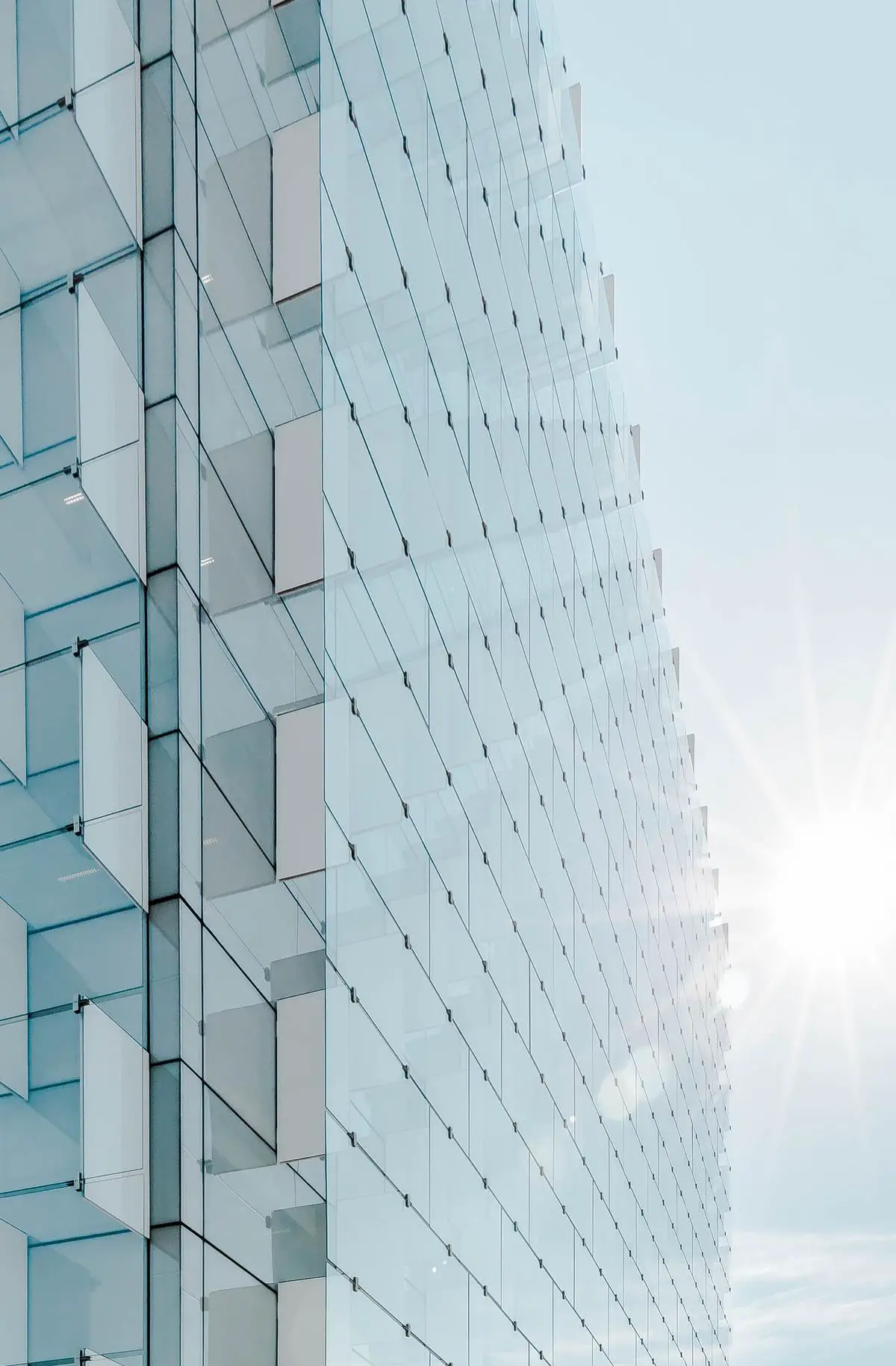
Photo by joelfilip on Unsplash
Mitigating the Negative Impact
Delving into the Effects of Binge Drinking on Sleep and Dreams
Binge drinking, normally quantified as the intake of four (for females) or five (for males) standard alcoholic beverages within two hours, can profoundly affect different health aspects – among which are our sleep cycles and potential to dream. Alcohol interferes with regular sleep patterns and disrupts our biological clock.
Consuming alcohol excessively, especially before sleeping, essentially disrupts the standard structure of sleep. This can result in insomnia, nocturnal sweats, terrifying dreams, heightened anxiety, and other sleep-related disorders. Moreover, alcohol suppresses the rapid eye movement (REM) sleep in the initial part of the night, which plays a crucial role in cognitive tasks such as learning, memory, and managing mood. It also happens to be the phase during which most dreaming occurs.
As the effects of alcohol diminish in the latter part of the night, we experience a “bounce back” effect. The suppressed REM sleep rapidly returns leading to unusual, vivid, and often unsettling dreams. This effect, known as “REM rebound,” happens when the body attempts to make up for lost REM sleep.
Mitigating the Negative Effects of Binge Drinking on Sleep and Dreams
Reducing or eliminating binge drinking is key to promoting healthier sleep patterns and improving dream quality. Here are some helpful steps to moderate alcohol consumption:
- Set Drinking Limits: Know your limits and try to drink within them. Limit the amount of alcohol consumed during each drinking session. You might even designate certain days of the week as alcohol-free.
- Hydrate: Drinking water in between alcoholic beverages can slow down the pace of drinking and reduce overall alcohol consumption. It also helps prevent dehydration caused by alcohol, which can exacerbate hangover symptoms that dampen sleep quality.
- Avoid Alcohol Before Bed: Alcohol is a sedative, but it disrupts sleep as its effects wear off. Try to avoid drinking at least a few hours before you plan to sleep.
- Seek Professional Help: If you or someone you know is struggling with alcohol abuse, reach out to a healthcare professional or local alcohol support group. They can provide resources and help develop a plan to reduce or stop drinking.
Benefits of Reduced Alcohol Consumption
Reducing alcohol intake or seeking sobriety can positively impact both physical and mental health, including improved sleep and dream quality. Less alcohol in the system means the body can follow its natural sleep rhythms. Longer periods of uninterrupted sleep allow for an adequate amount of REM sleep, thus normalizing the dream cycle.
Other health benefits include improved digestion, liver function, and cardiovascular health; increased energy and focus; better mood regulation; and enhanced cognitive functioning.
Professional Resources for Help with Alcohol Abuse
If you’re having trouble moderating your drinking habits, it might be time to seek professional help. This can be through healthcare providers, therapists specializing in addiction, or support groups like Alcoholics Anonymous. Teletherapy platforms and hotlines can also provide immediate access to help. Remember, the decision to seek help for alcohol misuse is a sign of strength, not weakness.
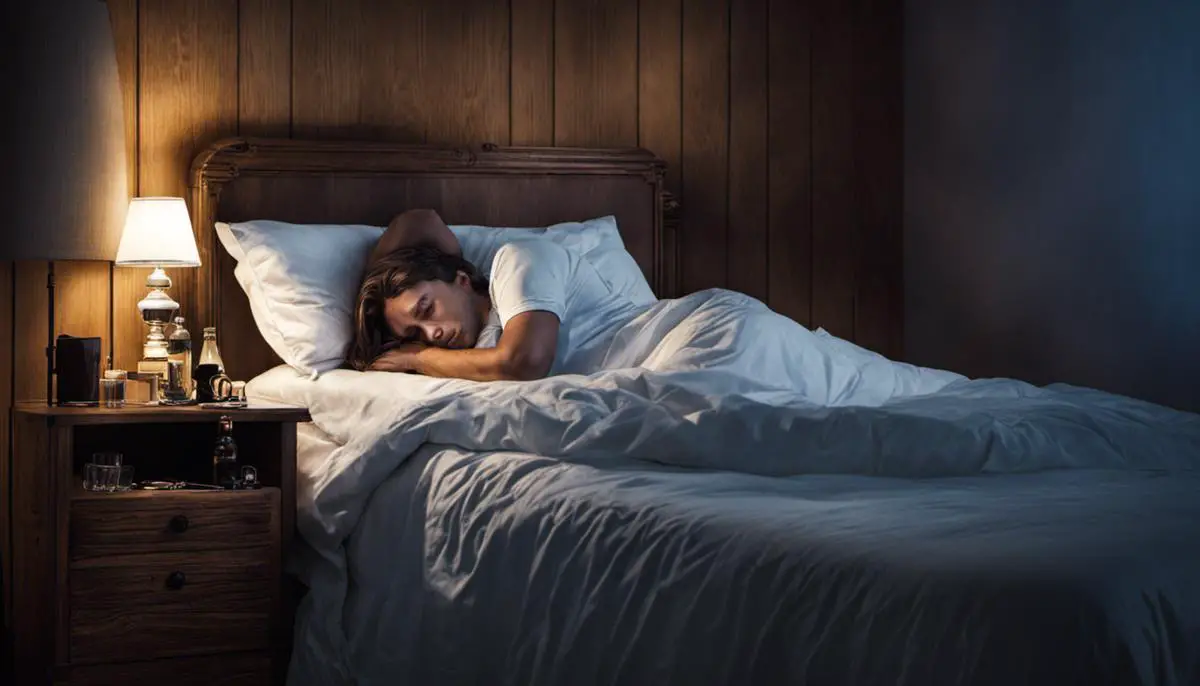
Understanding the tumultuous impact of binge drinking on dreams, sleep quality, and overall health, springs the need for mitigating these negative effects. A variety of strategies can help you strive towards moderating your alcohol consumption, capitalizing on the benefits of sobriety or less alcohol intake. The journey may be daunting, but remember—help is available, and recovery is always within reach. Navigating these choppy waters using professional resources, you afford yourself a chance at healthier sleep, more pleasant dreams, and overall improved well-being. In the end, our dreams often hold up a mirror to our inner lives. Let’s ensure it’s a mirror that reflects balance and health—a reflection we deserve to see.
